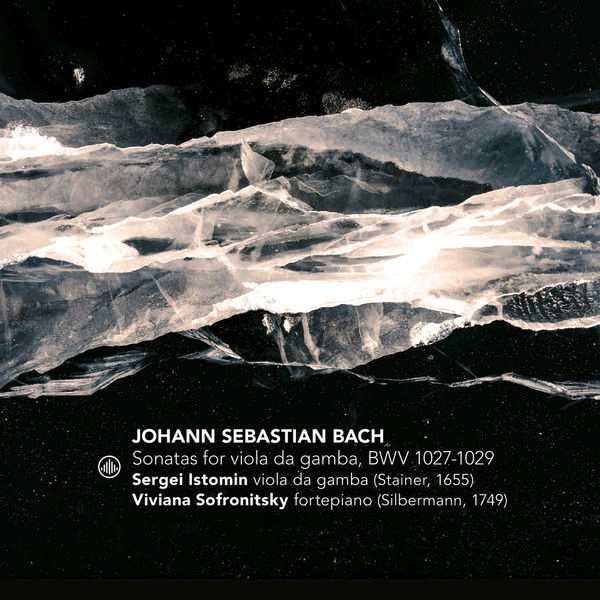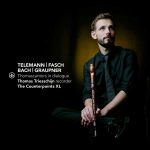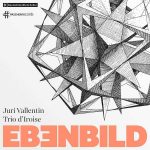
Composer: Johann Sebastian Bach
Performer: Viviana Sofronitsky, Sergei Istomin
Format: FLAC (tracks)
Label: Challenge Classics
Release: 2022
Size: 238 MB
Recovery: +3%
Scan: yes
Sonata No. 1 in G Major, BWV 1027
01. I. Adagio
02. II. Allegro ma non tanto
03. III. Andante
04. IV. Allegro moderato
Sonata No. 2 in D Major, BWV 1028
05. I. Adagio
06. II. Allegro
07. III. Andante
08. IV. Allegro
Sonata No. 3 in G Minor, BWV 1029
09. II. Adagio
11. III. Allegro
Musikalisches Opfer, BWV 1079
12. Ricercar a 3 in C Minor: Ricercar
J. S. Bach’s three viola da gamba sonatas stand out among his secular chamber works for strings for being quite possibly relatively late-career works, written not in Cöthen or earlier as for the rest, but instead from around the 1740s in Leipzig, where the day job was being music director to the town’s principal churches, but where Bach also had ample opportunity to scratch the secular-music itch, as director of the town’s Collegium Musicum (essentially a music club, whose members met and performed in the Café Zimmermann coffee house on Leipzig’s main square). As for whom the gamba sonatas were intended, one guess is Carl Friedrich Abel, who appears to have studied with Bach in Leipzig before eventually making his career in London and leaving a rich body of gamba works of his own.
On to Sergej Istomin and Viviana Sofronitsky, and the headline information here is that Sofronitsky isn’t on the usual period-instrument choice for these works of harpsichord, but instead a copy of a Silbermann fortepiano. Which is an entirely reasonable tack to take, given that Bach, always fascinated by the latest developments in keyboard technology, approved of the newly-invented fortepiano on a visit to Gottfried Silbermann himself in 1747. In fact one wonders why there aren’t more fortepiano recordings, considering the further context of Glenn Gould and Angela Hewitt having long ago made strong cases for a modern piano in this repertoire (when under the fingertips of a Bach specialist, at least).
Super-crisp and bright-toned up top – listen to the highest-register writing in Sonata No. 3’s final Allegro and its twang is positively harpsichord-ish – with a mellower ring to its lower-register shine, this particular fortepiano is a lovely instrument, and sits as a perfect foil to richer, grainily mahoganied tones of Istomin’s 1655 Stainer viol. The actual readings don’t disappoint either, presenting a world of charmingly reserved emotional expression, ornaments sparingly but effectively placed, all couched in a notably legato delivery. One especially lovely moment is the minor-keyed central Andante to No. 2 in D major, for the sympathetic contrapuntal interplay between the two musicians (and note that one of the pleasures of the sonatas’ actual writing is the way the gamba line sits midway between the keyboardist’s treble and bass lines); the keening curve to Istomin’s phrasing; the barely-there pianissimo softness of Istomin’s final sustained trill.
One tiny disadvantage of these three sonatas in the recording studio is that, if they’re presented alone, they represent a pretty slim offering to anyone planning to part with some actual cash for them rather than simply stream. Here, Sofronitsky rounds off the programme alone with the Ricercar a 3 from Bach’s Musical Offering. Sure, that’s only another seven minutes, but it does at least bring things up to a slightly healthier fifty minutes or so, and via a very beautiful, gently poetic reading into which the fortepiano once again breathes some additional magic of its own.



